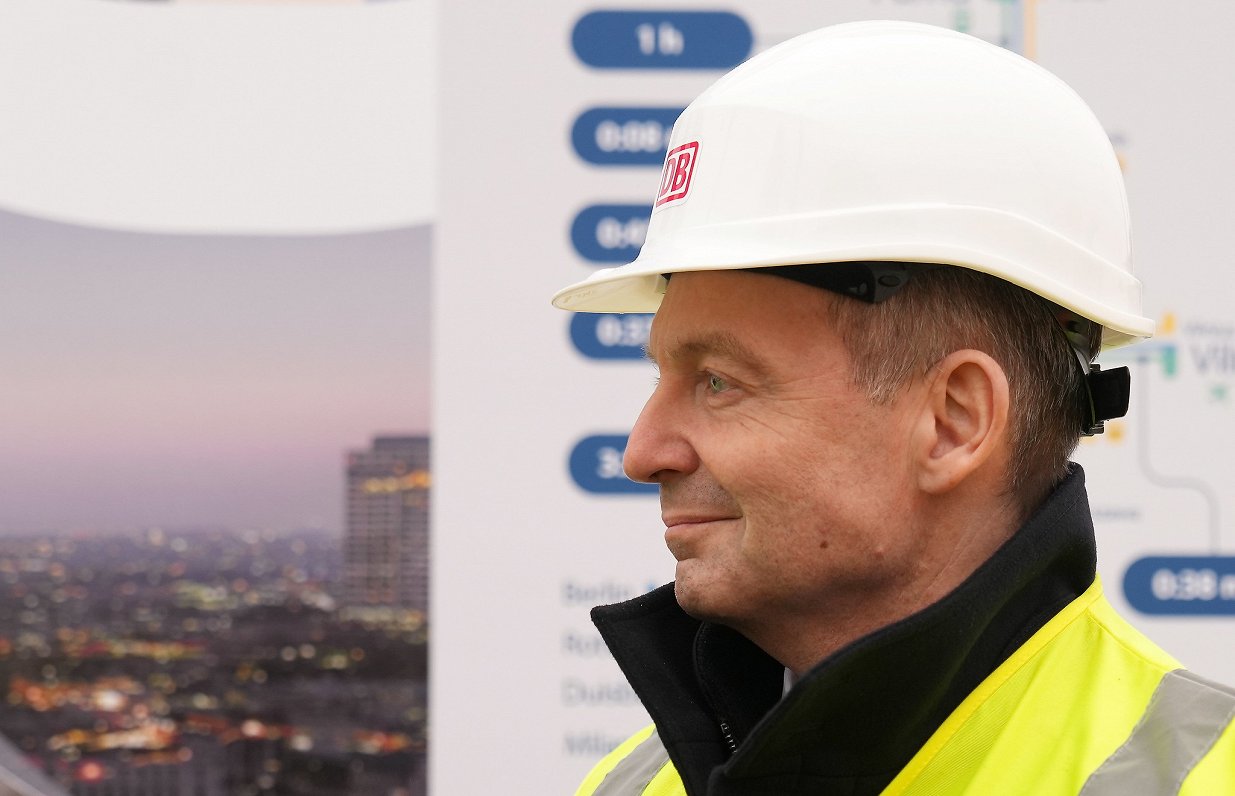At present a train trip between the Baltic states and Germany is a long-haul adventure lasting several days with repeated changes, inconsistent timetables and slow regional trains: anyone who wants to travel from Germany to the Baltic States by train needs nerves of steel and lots of time.
For the trip from Berlin to Riga you have to plan to be en route for around two days – and it is not even possible to buy a continuous ticket for it. But this is set to change: soon it should be possible to take on the 840 kilometer straight line long journey from the German capital to the Latvian capital comfortably overnight by train. The project that is supposed to make it possible is called Rail Baltica.
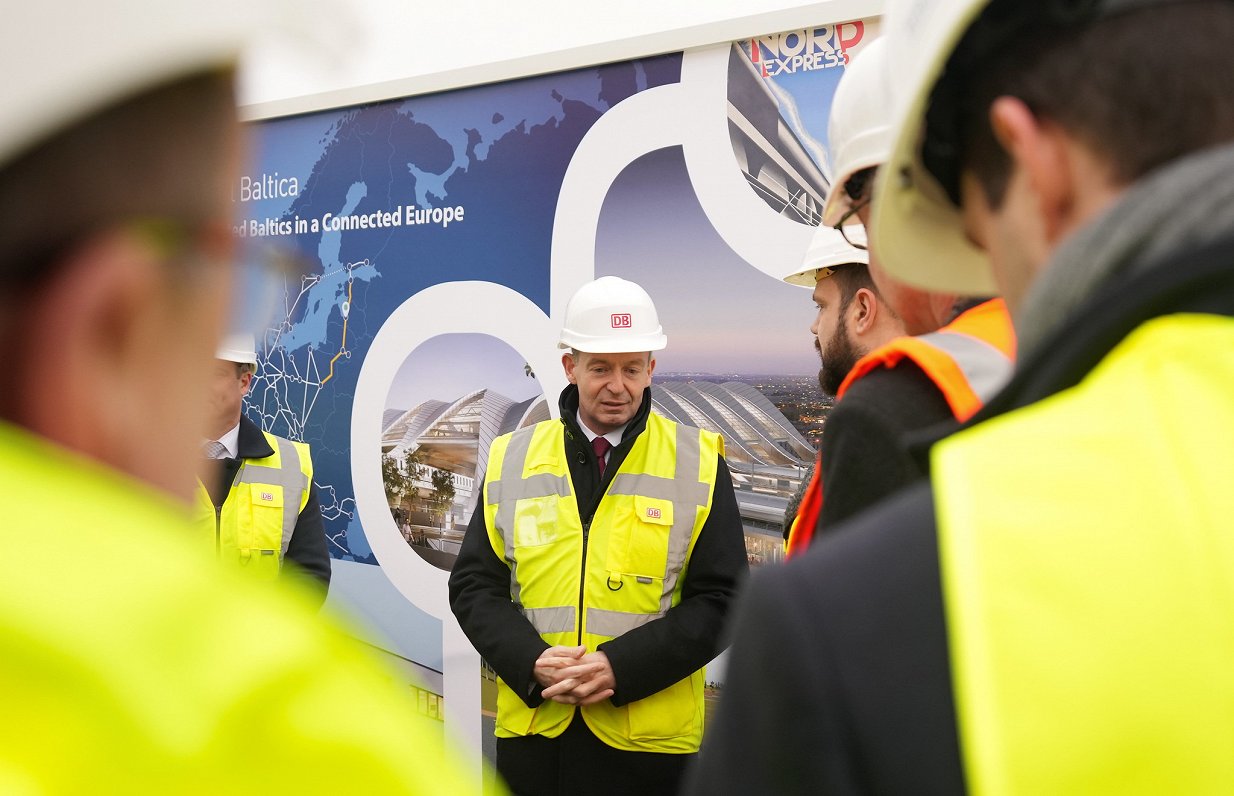
The pan-Baltic high-speed rail link is about to bring together the rail networks of the Baltic States and Western Europe. It is an ambitious mega-project – and not without its challenges.
Visiting Latvia and the construction site of the Rail Baltica Central Hub at Riga Central Station, the German Minister for Digital and Transport Volker Wissing voiced Germany`s support for the pan-Baltic railway project.
“Rail Baltica is a central rail connection for the whole of Europe. It is one of the most important projects in the trans-European network,“ he said on 15 February after a meeting with his Latvian counterpart Jānis Vitenbergs, adding:
"We know about the importance for the Baltic States, but we also know about the importance that this connection has for all of Europe."
Rail Baltica is the largest infrastructure project in the Baltic States, envisaging the construction of a new 870-kilometer high-speed railway line from Tallinn (Estonia) via Riga (Latvia) and Kaunas (Lithuania) to the Lithuanian-Polish border – double-tracked, in European standard gauge (1435 millimeters) and fully electrified. Passenger trains will travel at a speed of up to 250 kilometers per hour, while freight trains will travel at a speed of up to 120 kilometers per hour. The railway line is also to be connected further to the German railway network via the Polish capital Warsaw.
"We are convinced that Rail Baltica should be realized as fast as possible. It is important also for security reasons," Wissing said in reference to the Russian war in Ukraine. "The geopolitical situation has changed a lot in the last year and it is important that we have a reaction on that.“ He would give any support he could for the project, the German minister added on several occasion during his two-day long visit to Latvia.
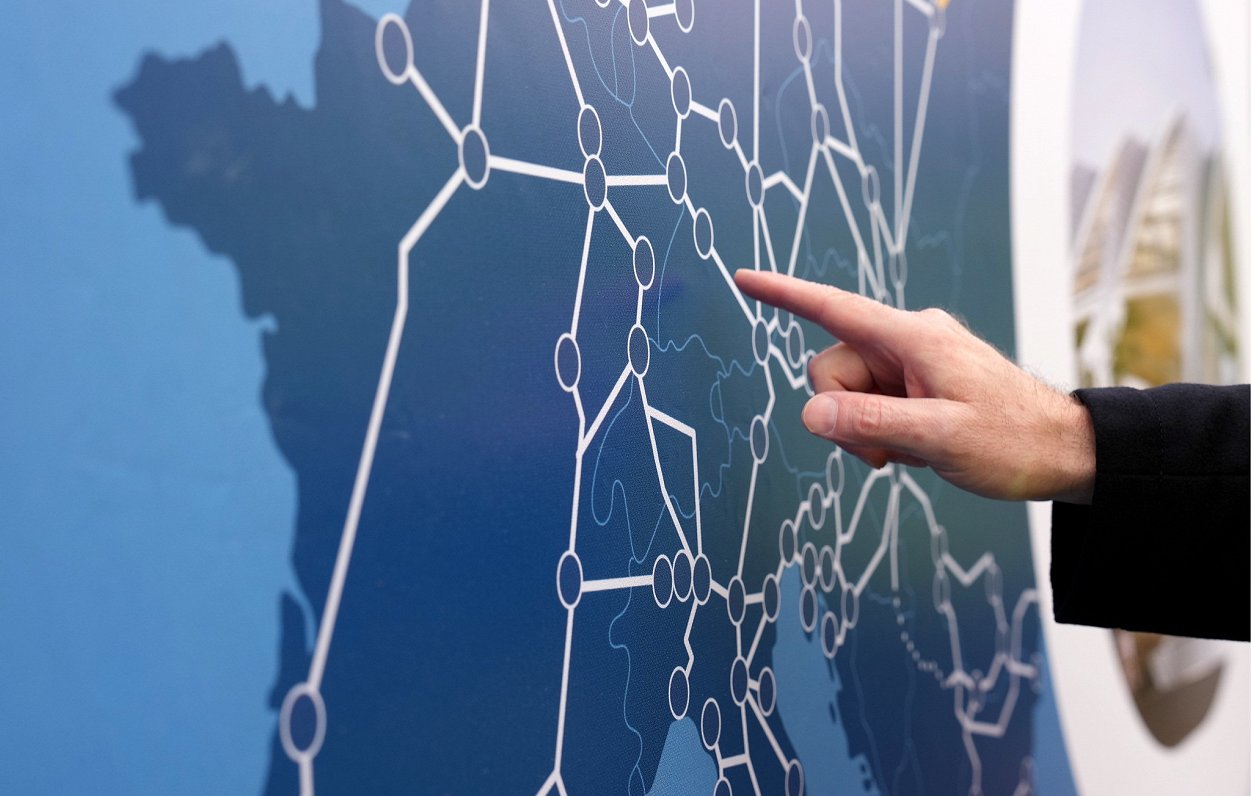
Vitenbergs echoed this assessment. “Rail Baltica project is the most important infrastructure object for our country, for our generation. It is not just an economical project. It is our duty and necessity for our security and independence,“ the Latvian Minister of Transport emphasized.
All three Baltic countries have a border with Russia and Latvia and Lithuania also share a common border with Moscow`s close ally Belarus. Seeing as how Russia has lashed out at Ukraine, the Baltics feel directly threatened.
Being considered now also a key project to improve military mobility in the region, the war in Ukraine could speed the construction of Rail Baltica that was for long hampered by national ambitions and interests. Estonia, Latvia and Lithuania have been at odds over many aspects of the North-to-South-line for several years and often have prioritized domestic rail projects over building the transnational high-speed link that has to be built from scratch since the current railway lines run from West to East and in the broader Russian gauge.
The original plan predicted that Rail Baltica would be completed in 2026, but it has already appeared that the project will be possibly ready only in 2030. Given the significantly extended end date and increased construction costs due to record-level inflation, it would not be surprising if the current price tag of 5.8
billion euro is to be revised upwards. 85% of costs are being met by European Union funds with Estonia, Latvia and Lithuania paying the remainder – each of them chipping in an additional 5%.
Expertise needed
Calling it a "mammoth project" and "something completely new for the Baltic States," Vitenbergs underlined the great importance of German experience and know-how for Latvia in the realization of Rail Baltica. "It would be difficult for us to advance this project without the cooperation with Germany," he said, adding that currently seven German companies are involved in the project at all its different stages and dimensions.
Similarly, Marko Kivila, interim CEO of the Rail Baltica joint venture RB Rail AS, called Germany a "friend of the project" during a common visit of Wissing and Vitenbergs on 16 February at the Rail Baltica construction site at the Riga Central Station. Wearing construction worker helmets and flashy signal vests, both ministers made on-site inspections and met with representatives of the companies RB Rail and Europas Dzelzceļa lijnas, which are responsible for Rail Baltica's section on Latvian territory.
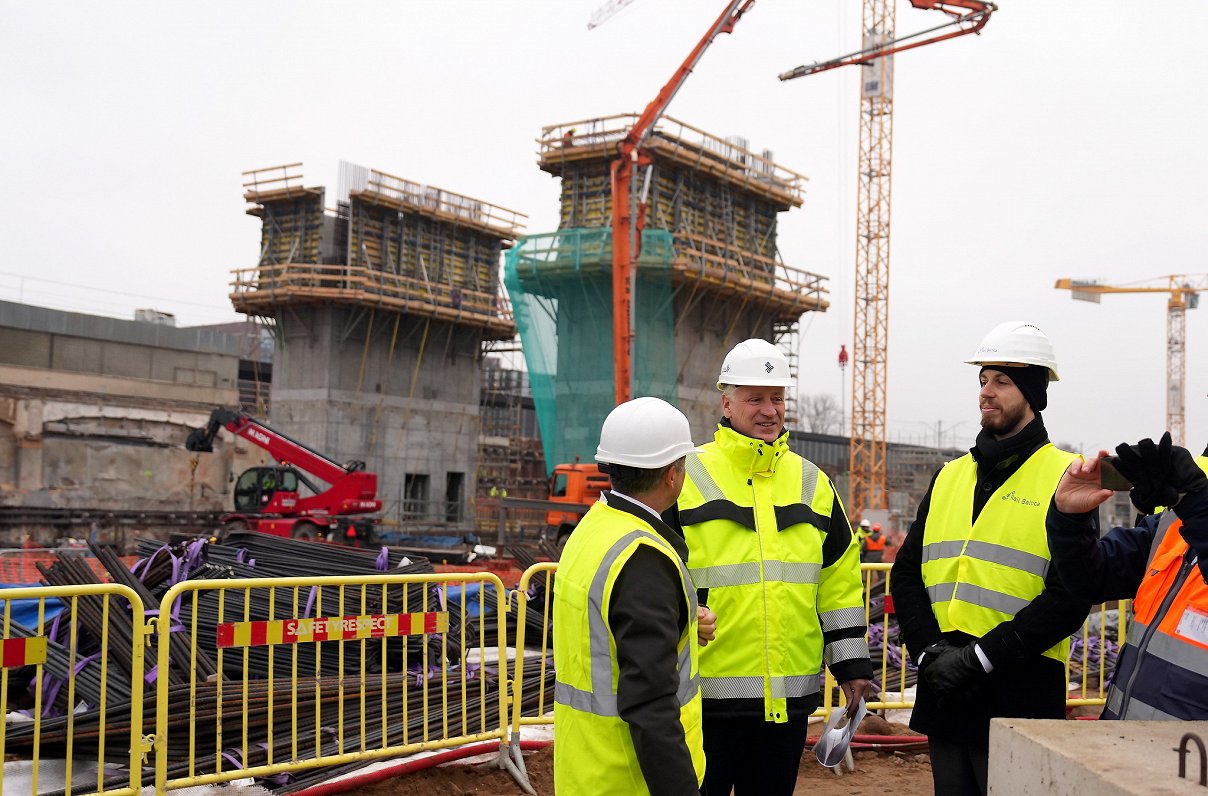
"This is my first time on the construction site which I see every day from the window in my office," Vitenbergs told Wissing when observing how large excavators were digging ground and heavy trucks bringing ready-mix cement onto the site right next to the Latvian transport ministry which since mid-December is led by the nationalist politician. Coincidentally, the visit took place on exactly the same day on which another German-Latvian duo visited the construction site a year earlier: German President Frank-Walter Steinmeier and
his Latvian counterpart, Egils Levits.
Back then, as now, also present were representatives of Deutsche Bahn, which is supervising of the construction of Rail Baltica ‘s Riga Central Hub – currently the largest and most extensive infrastructure project in Riga that will significantly alter the visual image of the Latvian capital. It will become an "outstanding station“ and "one of the nicest ones in Europe", according to Niko Warbanoff, CEO of Deutsche Bahn's global engineering and consulting business unit DB E.C.O. Group. "I am pretty sure about that."
Train connection from Riga to Berlin about to make a return
Creating a new landmark in the city, the Rail Baltica Central Hub will see massive parts of Rīga's historic center refitted for the new railway and a new bridge built across the River Daugava. Its central element will be the Central Station building with a long-span steel structure and repetitive sequences of arches. From there one day in the hopefully not-too-distant future it will again be possible for travelers to catch a train from Riga to Berlin – as in the days of the famous Nord-Express in the 1930s during the golden age of steam.
“Our goal is to start construction for the major part of the mainline of the Rail Baltica throughout the Baltic States at the end of next year. This is a tough challenge, ” said RB Rail interim CEO Kivila, who was only appointed Chief Procurement Officer and Member of the Management Board as recently as
November 2022, and found himself suddenly in the top job when the departure of the incumbent CEO was announced just two days before the arrival of the German delegation.
“It will be a tough challenge for us, for our sub-suppliers, but I believe our team is up for this challenge and we will meet it,“ said Kivila.
“I am working for this project already for five years. And it is not only the construction and design that goes on here, which is important and exciting for me. It is also the personal touch,“ pointed out Guntis Āboltiņš-Āboliņš, the managing director of BeReRix, the contractor which is building the Riga Central section.
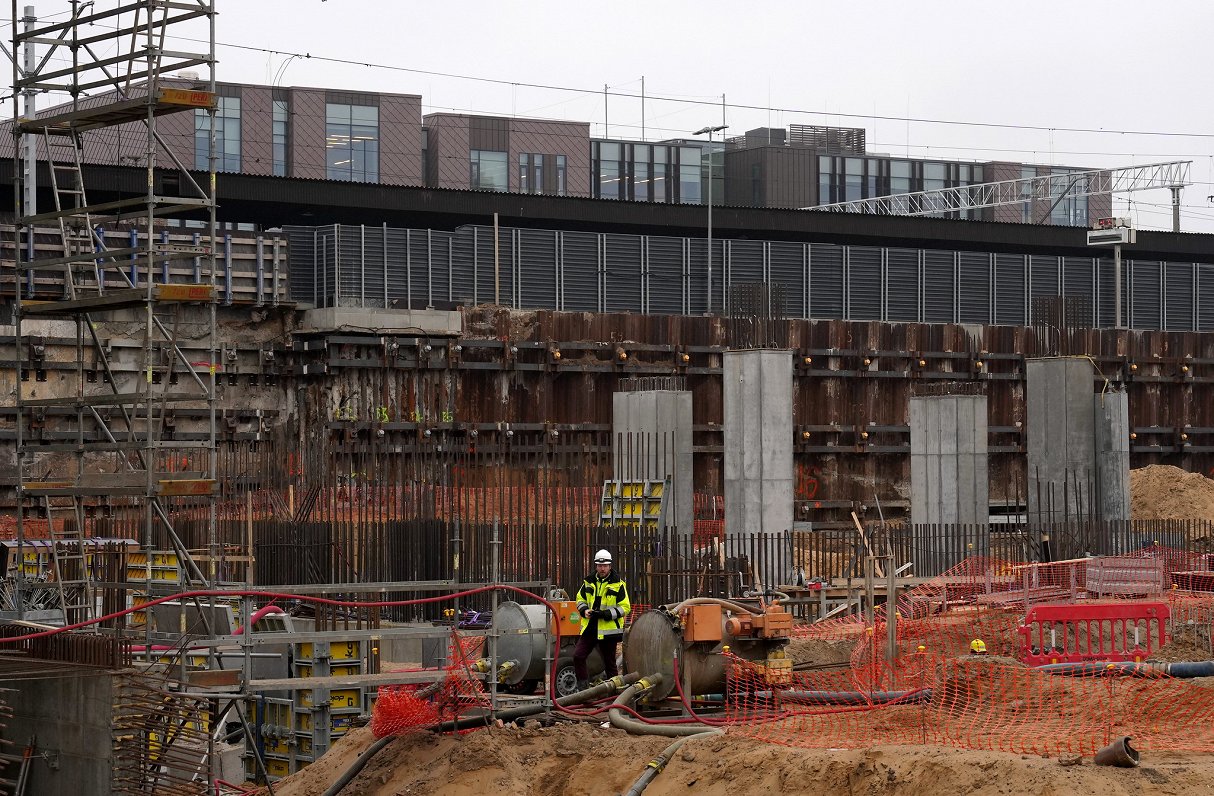
“The thing is that my family after World War II left from Latvia to Germany with the last train that was going on the European track. That was the train after which the track was destroyed. So I kind of feel that I now have an obligation in rebuilding and restoring that connection back again“, said Āboltiņš-Āboliņš, adding that he hopes and is looking forward to take his family on the first trip on the European track again as soon as possible.
Wissing was so moved by Āboltiņš-Āboliņš` story that he personally approached the German media representative accompanying him to listen to it. But the German transport minister also experienced first-hand how badly needed is Rail Baltica as a pan-Baltic train connection and link to Western Europe. Arriving in Lithuania by regular airline flight connections and using car transport to tour the Baltics from 13 to 17 February, he and his delegation got almost stuck in Estonia after a large-scale strike was called at seven airports across Germany. Only a hastily organized charter flight could solve the problem and provided for the
timely return of Wissing to Germany.
